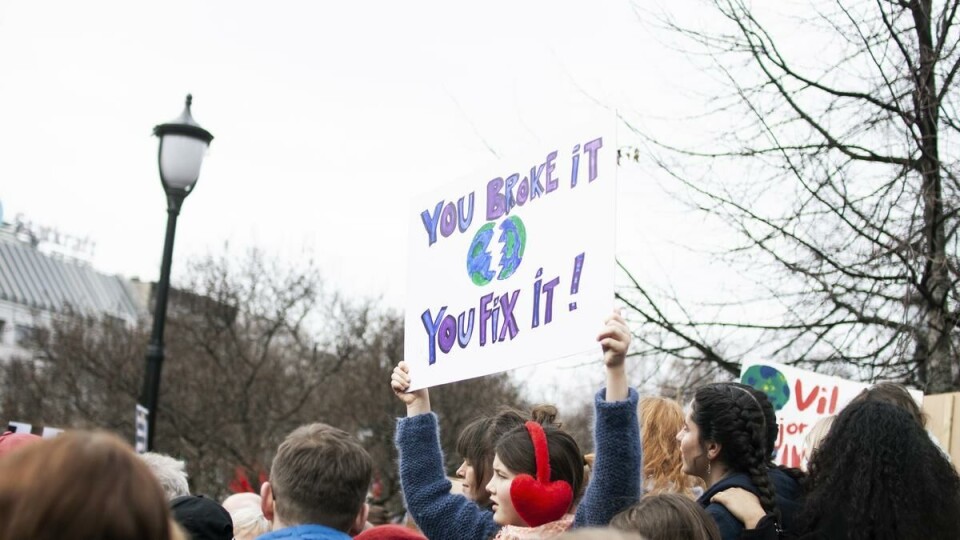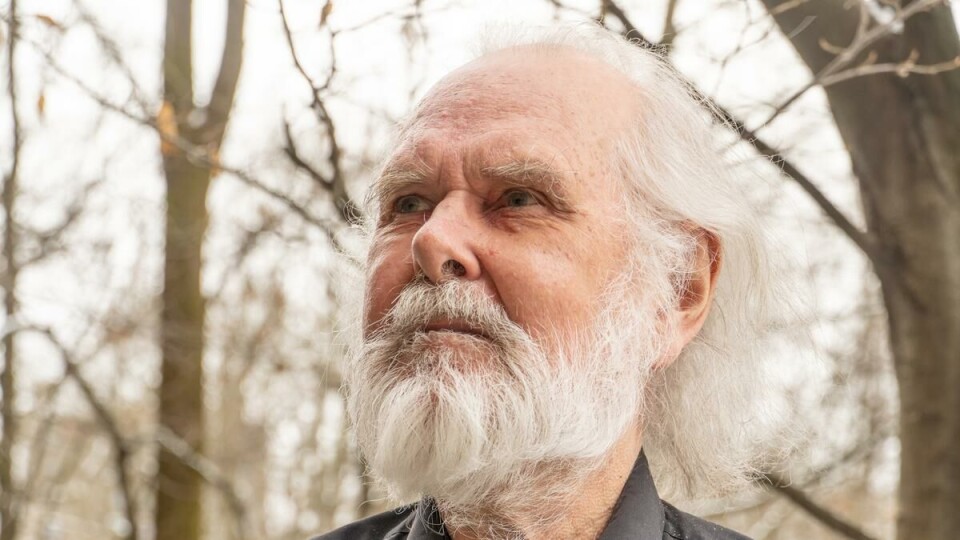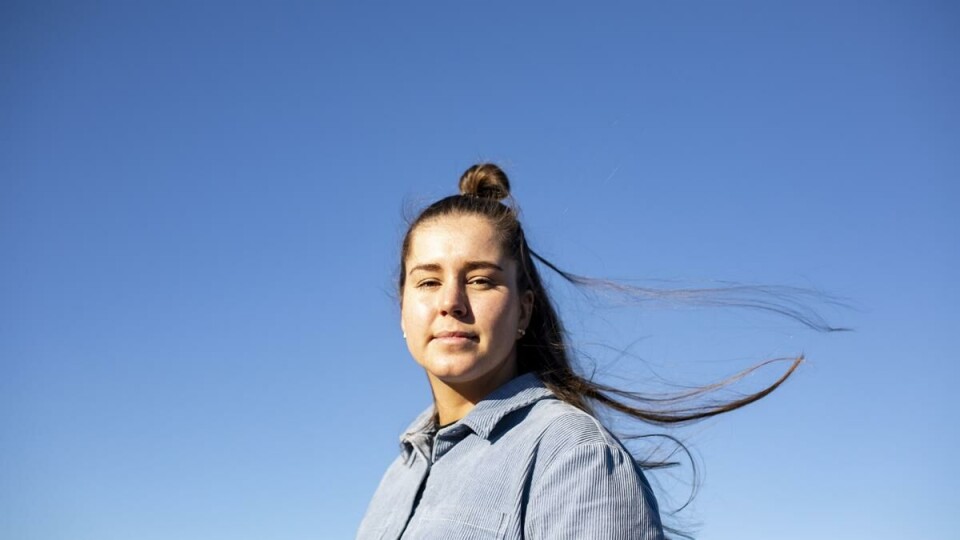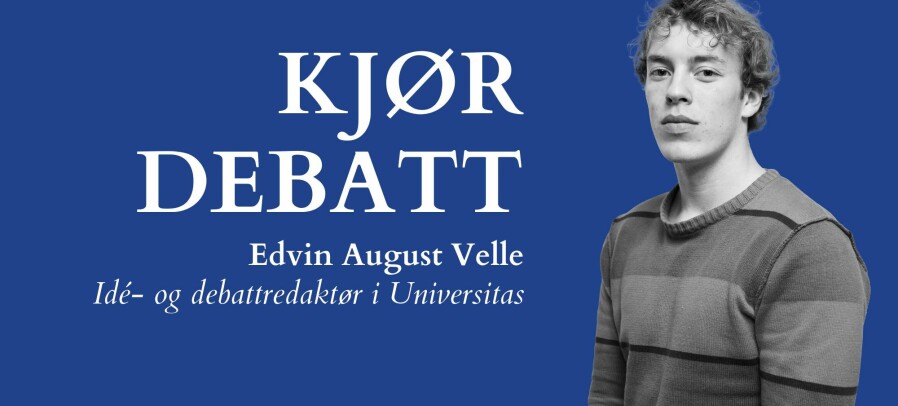UN’s New Report on Climate Change:

– The Material Condition of Living in Wealthy Countries is Not Sustainable
The new report from UN’s Intergovernmental Panel on Climate Change shows that action is more urgent than ever. Both UiO-researcher Nils Chr. Steseth and the leader of Changemaker Naja Amanda Lynge Møretrø believe that wealthy countries must confront the material conditions of living.
On Monday, last week, came another somber message from UN’s Intergovernmental Panel on Climate Change (IPCC), as the second assessment report was released. Never has it been more urgent to ensure climate transition. This is, among other reasons, due to several climate changing effects having been put into motion simultaneously, which escalates the total effect. Half of the world is categorized as “highly vulnerable” towards climate change, and the choices we make the next 10 years will be decisive.
- It may be the case that we as researchers previously have been modest in communicating the seriousness of climate change in fear of being doomsayers. The opinion among professionals has been that we do not wish to create fear, as it can have a negative effect. I am self-critical that we haven’t been clear enough previously, states Niels Chr. Stenseth, professor at The Faculty of Mathematics and Natural Sciences at The University of Oslo (UiO). He is one of the lead authors behind the first chapter of the report.

He gives researchers part of the responsibility for previously failing to communicate the urgency of implementing countermeasures clearly enough.
– Drastic changes are necessary. Both for us as individuals, and by society paving the way for us to change our conduct and use of resources.
The opinion among professionals has been that we do not wish to create fear, as it can have a negative effect. I am self-critical that we haven’t been clear enough previously.
A new spring for climate justice?
The report also sets itself apart from previous reports by having a greater emphasis on climate justice. In the report, the term “climate justice” is defined as something that is perceived unevenly in different contexts and communities, but includes three main principles:
The leader of Changemaker, Naja Amanda Lynge Mørretrø (24), underlines climate justice as one of the fundamental messages in the report.
– The Panel on Climate Change highlights that climate change hits unevenly and unfairly. There are disparities in who has contributed to emissions. It is wealthy countries, who have burned large amounts of fossil fuels, who have contributed the most.
– Climate finance means allocating money towards climate change measures in low and middle-income countries. This includes both financing cuts in emissions, climate transition and support for loss and damage related to climate change, she states.
- Just allocation – allocation of responsibility, burden and benefits between individuals, nations, and generations.
- Procedural justice – concerns who participates in the decision-making process.
- Recognition – concerns basic respect and just treatment of different cultures and perspectives
Wealthy countries must do more
For low-income countries to have the opportunity to focus on climate policy, much else must be in order first. One of the conclusions after the climate summit in Glasgow, was that wealthy countries had contributed too little in providing financial assistance to help low-income countries adapt to climate change. The leader of The Development Fond (Utvilkingsfondet), Jan Thomas Odegard, calls it “a letdown”.
– IPCC states that peace, stability and combatting poverty are necessary to reach the climate goals in a just way, she comments.
Møretrø believes that wealthy countries, such as Norway, must allocate more money towards education, health, and covering the costs of debt- and poverty crises. She also believes that Norway, as an oil-nation, has a historic and special responsibility to contribute to climate finance internationally.
Regarding the question of how much Norway should contribute, she refers to numbers from the Report “Norway’s fair share” from 2018, which has estimated Norway’s legal share of climate change to be 65 billion yearly. This is ten times more than the current level of climate finance.
– Everyone understands that we cannot move straight towards that target, but we need a course of action, Møretrø says.
Must confront conditions of living
According to Stenseth at The University of Oslo, there are also other aspects within climate justice other than the question of who needs to finance the costly measures towards a cut in emissions and transition.
– There are many ethical challenges connected to climate change. Climate change, global warming and loss of biological diversity are connected. If one is to transition energy production, for instance by shifting towards an increased use of solar power, it will require large areas of land, which in turn will lead to a loss of biological diversity.
There are also many challenges connected to conditions of living, he emphasizes.
– I have difficult envisioning that poorer parts of the world, in a material sense, can achieve the same conditions of living as us if we are to combat global warming. We have difficulty grasping this, but it concerns justice: What right do we have to determine this?

Møretrø in Changemaker comments that neither wealthy countries can continue at the current levels of consumption.
– The material conditions of living that we have in wealthy countries are not sustainable. This means that we cannot continue as now, and that other countries also cannot develop material conditions of living on this scale, she comments.
– Instead, we should rather focus on other values that are important to us, but that do not simultaneously destroy the world. All countries, therefore, must develop in a new direction, together, she continues.
All countries must develop in a new direction, together.
This new direction must, among other, consist of a confrontation with the consumption-based society and a greater upscaling of the circular economy, according to Mørretrø. She also believes that Norway must phase out its extraction of oil.
The climate engagement of the youth matters
Stenseth gives the youth much of the credit for the larger role climate justice has played in this report than in previous ones.
– I am convinced that the engagement of the youth has contributed to the fact that we now see a greater emphasis on climate justice, he states.
He points out that climate engagement is driven by a much larger group than in previous generations:
– In the 70’s we were concerned about changing our life course to avoid global warming. We didn’t think of ourselves or our children first, but rather the physical climate system.
Now the focus is more «self-centered», he believes, and elaborates: – There are, in a sense, a fair share of negative aspects about such a self-centration, but there are also many benefits. When people are engaged on a more personal level, politicians have broader support to implement measures.
Møretrø also points out that the strong climate engagement among the youth is important if we are to succeed in reaching the climate goals.
– Young people know of a different fear than the elderly, but at the same time, the youth showcase that hope and opportunity exist. We are willing to change and adapt, because we wish for a world with change and justice for all.
She also emphasizes that, despite the urgency, not all hope is lost:
– IPCCs message is somber, but it also expresses that we have an opportunity to do something over the course of the next 10 years. I think I live and work with this in a very important time, and that inspires and motivates me.
































